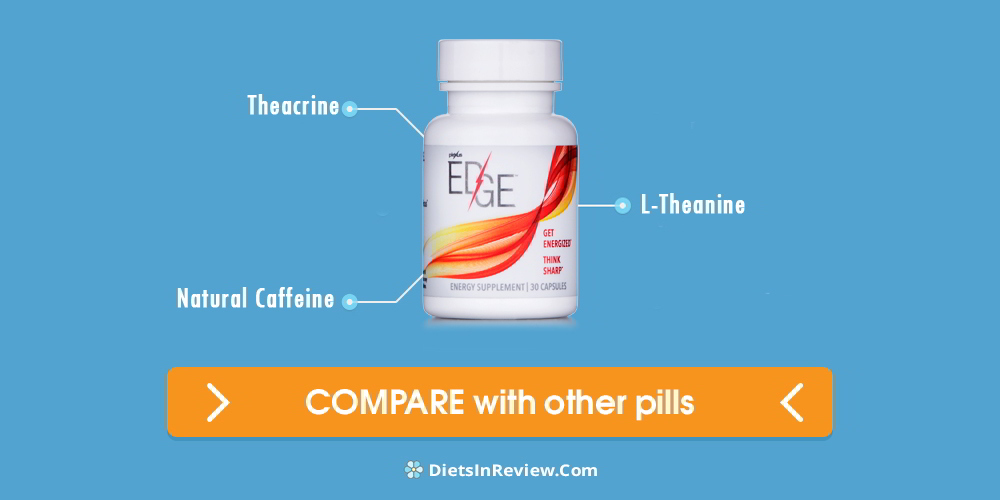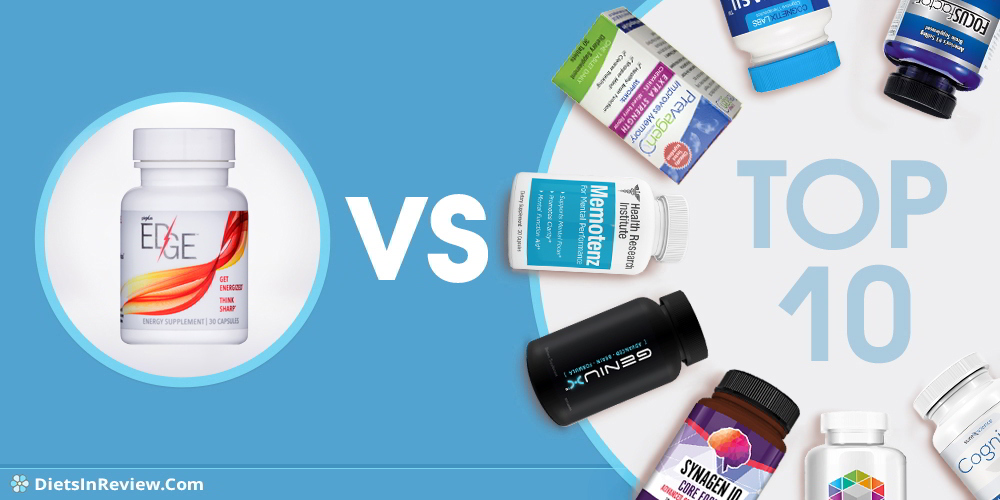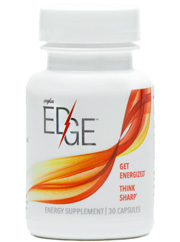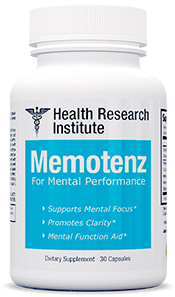Plexus EDGE Review: Don’t Buy Before You Read This!
User Rating:
36%
 +
-
+
-
What is it?
Plexus EDGE is a nootropic supplement designed to increase mental performance and energy levels in its users. Its advertising says that it can reduce fatigue and the negative mental effects that come with it.
They also say that it is useful for increasing concentration levels and focus, and that it may lead to sharper focus as well. Their promotional materials suggest it to athletes, busy professionals, overworked parents, and anyone over 30 that is starting to see decreases in their baseline energy levels.
The nootropic product that has gotten the best critical response from the community is Memotenz. It has developed a reputation as the go-to mental performance aid for industry professionals and regular nootropics users. Click here to learn more about the formula and manufacturing process behind Memotenz.
Plexus EDGE Ingredients and Side Effects

Ingredients:
| Theacrine |
L-Theanine |
Natural Caffeine |
Theacrine: A purine alkaloid that is extracted from certain teas, coffee, and the theocrama and herrania plants. There have been very few human studies of theacrine and its effects and consequences on the body are not well understood at this time.
It is chemically similar to caffeine and can have similar stimulatory effects on the central nervous system, however depending on the dosage it can also have an opposite sedating effect. Both caffeine and theacrine are thought to be sedatives when taken in smaller doses and stimulants when taken in larger doses.
Caffeine is far more potent, and the sedative dose is so low that it is rarely used for those purposes. Theacrine, however, is still considered a sedative in relatively higher doses.
As a stimulant, which is how it is being marketed by Plexus EDGE, theacrine is also less potent than caffeine. It is an adenosine signaler that can slightly increase physical energy and locomotion, however it has shown very few applications for improved mental performance in its animal trials.
It has been specifically tested for usefulness in improving memory, cognition, and attention span, however none of those tests yielded positive results. At this point, it seems that theacrine has very little value as a nootropic supplement ingredient.
There is also very little concrete data about the possible side effects of theacrine, however it has not been shown to cause the same spikes in blood pressure that caffeine has. There are some concerns about its genotoxicity, and it is not known whether theacrine can have mutagenic effects on users’ DNA.
L-Theanine: A non-essential amino acid that is used to promote relaxation. It is often paired with caffeine to counter some of its negative impacts on mood and irritability.
L-Theanine is not considered a sedative, although it can help improve sleep quality in some people. It has also been shown in some clinical studies to help reduce anxiety and improve the symptoms of schizophrenia. It has no known euphoric effects and does not directly impact mood or wellbeing itself.
L-Theanine has been shown to help increase the concentrations of GABA in the brain, which has led some scientists to wonder if it may have applications for learning or memory. All tests regarding those functions, however, have failed to yield any positive results.
L-Theanine is not considered an effective nootropic. It does not usefully impact intellectual performance in any noticeable or measurable way. It is generally thought to be safe for human use and there are no known side effects to its consumption.
Natural Caffeine: A far more common stimulant, though not one that our team recommends for inclusion in a daily nootropic supplement. The natural caffeine in Plexus EDGE is extracted from coffee beans and is chemically the same as synthetic caffeine or the caffeine from other natural sources.
Caffeine is often confused as a nootropic because of the immediate boost that many people feel when they take it. That stimulatory effect is mostly only useful for counteracting the detrimental effects of fatigue, however, and it does not generally benefit the mental performance in otherwise healthy and alert people.
Caffeine can have detrimental effects to attention and energy levels as well, especially after its positive effects have worn off. Caffeine should be used in moderation and only to combat fatigue as necessary, not taken on a daily basis to increase memory, cognition, brain function, or any of the other metrics used to judge a nootropic supplement.
Caffeine is also not the safest supplement ingredient, and it can have a number of potentially serious consequences on the body. The most concerning possible side effect for caffeine is its impact on the heart and blood pressure, which has led to many heart attacks, strokes, and deaths over the years.
Click here to see a list of the top 10 nootropic products on the market today.
Plexus EDGE Quality of Ingredients
 Plexus EDGE does not have a good blend of ingredients for supporting mental function, and they don’t even really have a good blend for providing energy and stimulation. Some users will feel some energy benefits in the short term, however others may actually feel a sedative effect or no effect at all from Plexus EDGE.
Plexus EDGE does not have a good blend of ingredients for supporting mental function, and they don’t even really have a good blend for providing energy and stimulation. Some users will feel some energy benefits in the short term, however others may actually feel a sedative effect or no effect at all from Plexus EDGE.
Regardless of initial benefit, Plexus EDGE will lose effectiveness rapidly. The 90mg of caffeine is about the same amount that would be found in a normal cup of coffee, and users should expect its benefits to last for about as long.
Plexus EDGE may not be safe for some users with heart and blood pressure issues. The combination of multiple stimulants and sedatives can be particularly damaging to the heart, and anyone with preexisting coronary issues, high blood pressure, or that is taking medicine to regulate blood pressure should not use Plexus EDGE.
Follow this link to find the ratings for all of the top memory enhancement products according to our team of researchers.
The Price and Quality of Plexus EDGE
Plexus EDGE is sold through a variety of online supplements distributors as well as through their own webpage, and the price can vary considerably. Users can expect to purchase Plexus EDGE for a price in this range:
- 1, 30-count bottle of Plexus EDGE capsules: $35.99-$53.00
Their website does not offer any discounts for purchasing in quantity, however they do have a preferred members program.

To learn how to choose a nootropic product that will be beneficial for you and your specific brain chemistry, click here.
Business of Plexus EDGE
Plexus Worldwide makes Plexus EDGE, along with several other brands of dietary supplements and pharmaceutical products. They can be contacted in the following ways:
Phone Number: (480) 998-3490
Address: 9145 E. Pima Center Pkwy
Scottsdale, AZ 85258
Email: [email protected]
It should be noted that Plexus Worldwide has an overwhelmingly negative response from customers at the Better Business Bureau, and that they have also been criticized for their business structure, which has been called a pyramid scheme. Plexus Worldwide has also been contacted by the FDA about their labeling and advertising claims, which have been shown to be inaccurate and misleading.
For more data about which nootropics have been able to increase their users’ mental performance metrics the most, follow this link.
Customer Opinions of Plexus EDGE
The large number of retailers that carry Plexus EDGE means that there are quite a few objective customer reviews out there. Unfortunately for Plexus EDGE, quite a few of those reviewers are very negative about their experiences. Here are some of the accounts taken from previous Plexus EDGE clients:
“Made me nauseous and did nothing for my energy levels. I tried it for like a week and it just kept getting worse so I chucked it.”
“I got this stuff to help me cram for an Econ test, but it made me so sleepy I just passed out. Totally flunked the test, and I 100% blame Plexus.”
“I got all jittery and angry, and my blood pressure went through the roof. I. thought I was gonna pass out for a bit, but then it passed. I chucked the bottle the next day.”
There was a disturbing frequency of the reports of side effects. Many were minor, such as gastro-intestinal distress, sweating, and irritability, however there were more serious issues as well, such as the review above that mentioned blood pressure fluctuations.
Click on this link to find more reviews from our experts about the best nootropic products on the market today.
Conclusion – Does Plexus EDGE Work?
Plexus EDGE does not have an ingredients blend that could possibly make it effective as a nootropic supplement. It uses a blend of stimulants and sedatives that have not demonstrated any beneficial effects for learning, memory, thinking speed, thinking accuracy, attention span, or focus.
It uses the undertested theacrine and the proven ineffective caffeine, which are both supplements that our team does not recommend at this time. Plexus international has made some questionable choices as a business in the past, and the reports from their past customers are not very encouraging.
For all of these reasons, our team of expert health and wellness product reviewers cannot endorse Plexus EDGE to our readers.
The nootropic supplement that our team has rated the highest is Memotenz. It has a well-documented ingredients blend that features some of the most established mental performance additives known to science.
The potent herbs bacopa monnieri and ginkgo biloba are both used alongside key amino acids such as L-carnitine and glutamine to form a sophisticated and effective mix. Click here to see the exact dosage amounts and nutrition information for Memotenz.
Featured Diets













I took it to help me focus for a huge exam, I took it an hour before the test and during the test I started to shake, get jittery, and feel like my heart was racing super fast. The whole day I have felt nauseous and lightheaded. I do not suggest taking this product. Maybe it was how I took it.